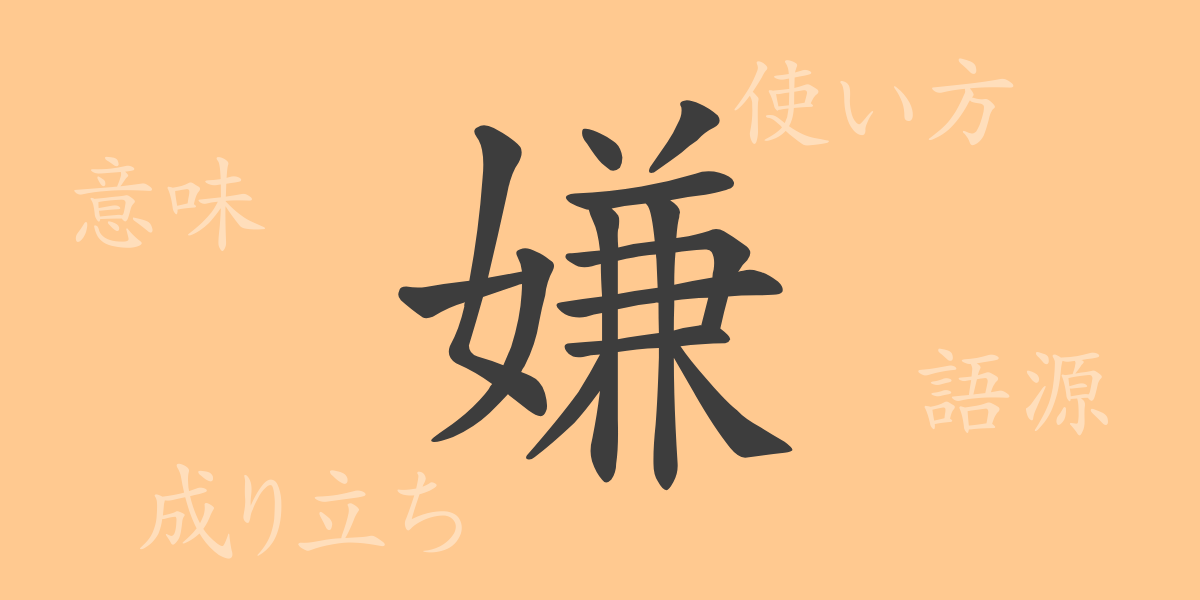The frequently used kanji “嫌” (けん, ken) in the Japanese language is integral to daily conversations. This kanji, essential for expressing emotions, carries a rich history and intricate form. This article delves into the origins, meanings, usage, and various idiomatic expressions and proverbs related to “嫌” (けん, ken). Let’s explore the world of “嫌” (けん, ken) and appreciate the depth of the Japanese language.
Origins of 嫌
The kanji “嫌” (けん, ken) can be traced back to ancient Chinese texts. Initially, it depicted a “woman who disliked marriage.” Over time, it evolved to mean “dislike,” “unpleasant,” and “uncomfortable.” Today, it is widely used to express psychological rejection and aversion, making it a key character in expressing negative emotions in modern Japanese.
Meaning and Usage of 嫌
The kanji “嫌” (けん, ken) is primarily used to express negative emotions, aversion, and rejection. In Japanese, it appears in adjectives like “嫌い” (きらい, kirai) meaning “dislike,” and in expressions like “嫌だ” (いやだ, iyada) indicating displeasure. It is also seen in phrases such as “嫌がる” (いやがる, iyagaru), “嫌な予感” (いやなよかん, iyanayokan), and “嫌味” (いやみ, iyami), demonstrating its wide usage in various contexts.
Reading, Stroke Count, and Radical of 嫌
The kanji “嫌” (けん, ken) illustrates the complexity of the Japanese language through its structure and readings.
- Reading: On’yomi – けん (ken); Kun’yomi – いや (iya), きらう (kirau), きらい (kirai).
- Stroke count: 13 strokes.
- Radical: The radical is 女 (おんなへん, onnahen), which relates to women.
Idioms, Proverbs, and Phrases Using 嫌
Numerous idioms, proverbs, and phrases in Japanese feature the kanji “嫌” (けん, ken). Here are some examples:
- 嫌悪感 (けんおかん, kenokan): A strong feeling of aversion or repulsion.
- 嫌疑 (けんぎ, kengi): Suspicion or doubt.
- 嫌味 (いやみ, iyami): Sarcasm or a critical remark.
- 嫌気が差す (いやけがさす, iyakegasasu): To feel fed up or discontented.
- 嫌々ながらも (いやいやながらも, iyaiyanagaramo): Reluctantly or unwillingly.
Conclusion About 嫌
The kanji “嫌” (けん, ken) is deeply rooted in expressing human emotions in Japanese. Understanding its origins, evolving meanings, diverse usage, and idiomatic expressions reveals the power and cultural background of language. For learners of Japanese, comprehending this kanji is crucial for grasping the emotions and nuances behind the words. Through “嫌” (けん, ken), one can rediscover the richness and expressive potential of the Japanese language.

























